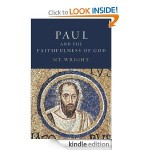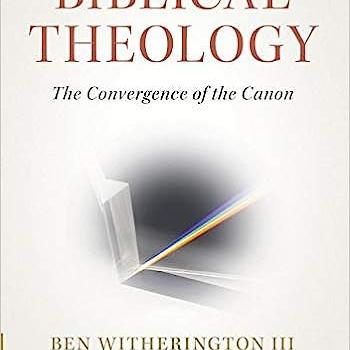As has once been said in jest, there is an appalling amount of Paul in the NT (13 of 27 books are attributed to Paul), and when it comes to Evangelical treatments of Paul, there is also a plethora of those available as well. Indeed one cannot read all the treatments are out there, as they number like the sands on the seashore. But if you are going to read some thorough treatments of St. Paul, then one of those treatments (at 1700 pages in two volumes) is Tom Wright’s magnum opus entitled Paul and the Faithfulness of God. What is now going to happen on this blog is there is going to be a long running interaction with and critique of this important work, with occasional comments from Tom himself in response to a few queries I will ask him. This will not be like the dialogue we had last Fall on his collected Pauline essays, but rather a thorough analysis of Wright’s big work, chapter by chapter. I will of course intersperse other sorts of posts along the way for those who glaze over when detailed exegetical and theological discussions appear on blogs in a world too attuned to sound-biting everything. One other note. When these posts begin to appear I will be teaching in India for a couple of weeks so if you have comments or questions, be patient and I will respond in due course.
Let’s start with the astounding claim, made almost from the outset,namely that Paul invented Christian theology and what that invention entailed was the reworking of basic early Jewish theological themes having to do with monotheism, election, and eschatology in light of what Paul now believed about Messiah and Spirit. Of course the claim has often been made that Paul was the inventor of Christianity (and as such the first corrupter of the true Jewish religion of Jesus). This is not in fact what Tom is claiming, but it is not totally dissimilar to such claims. At the heart of Tom’s most fundamental claim is that Paul’s own mindset after Damascus Road was fundamentally changed by what I would call his conversion experience (Tom demurs from calling it a conversion), and the change had to do with the new things Paul came to believe about Jesus of Nazareth and the Spirit and how that led to a total re-envisioning and re-working of the major categories of his pre-existing Jewish symbolic universe.
I think he is quite right about the radical nature of the change, and implicit in this is a thorough-going critique of folks like Mark Nanos who are not even prepared to talk about ‘the parting of the ways’ when it comes to Paul, rather seeing Christianity as still part of the in house debates in the synagogue. Nanos is simply wrong about this. There was a reason the Judaizing Christians wanted Paul dead and ran around behind him trying to correct what he had done, even when it came to Gentiles. But let’s let Tom speak for himself as we set out on this long sea voyage through these new stimulating books:
“…the main thesis of the book… can be briefly stated thus: Paul developed something we can appropriately call his ‘theology’, a radical mutation in the core beliefs of his Jewish world, because only so could he sustain what we can appropriately call the ‘worldview’ which he himself held and which he longed for his churches to hold as well. Other worldviews have their sustaining and shaping practices, but for Paul these markers (circumcision, the food laws, and so on) had been set aside as inappropriate for the new messianic people. Only a robust reappropriation of the Jewish beliefs— monotheism, election, and eschatology, all rethought around Messiah and the spirit– would do….My proposal is that Paul actually invents something we may call ‘Christian theology’, in this particular way (Jewish beliefs about God reworked around Messiah and spirit) for this particular purpose (maintaining the new messianic people in good order).” (p. xvi).
Tom goes on, early on, to explain what he thinks took precedence above all else for Paul in his narrative thought world, namely ‘the reconciliation and mutual welcome of all those ‘in the Messiah’, taking Gal. 3.28 as a fundamental statement of this bedrock belief (p. 12). This is interesting, and in some ways echoes R.P. Martin’s earlier claims that reconciliation (as opposed to endless discussions of justification) was what was really nearest and dearest and at the heart of Paul’s theology. Note that Tom does not think that the term Christos is ever simply a cipher for Jesus, and indeed he is prepared to argue that Christos should regularly be seen as a collective noun, including Christ and his people. He puts it this way on p. 17–“when Paul uses the word Messiah he evokes a world in which the Messiah, the king of Israel, sums up his people and their story in himself. Two thousand years of history, from the call of Abraham to the time of Jesus, are collected up like light in a prism and focused onto the royal representative in whom their meaning and purpose is fulfilled.” (p. 17).
And how does Tom begin to spin this all out? ……by discussing Philemon!!! More in the next post.


















